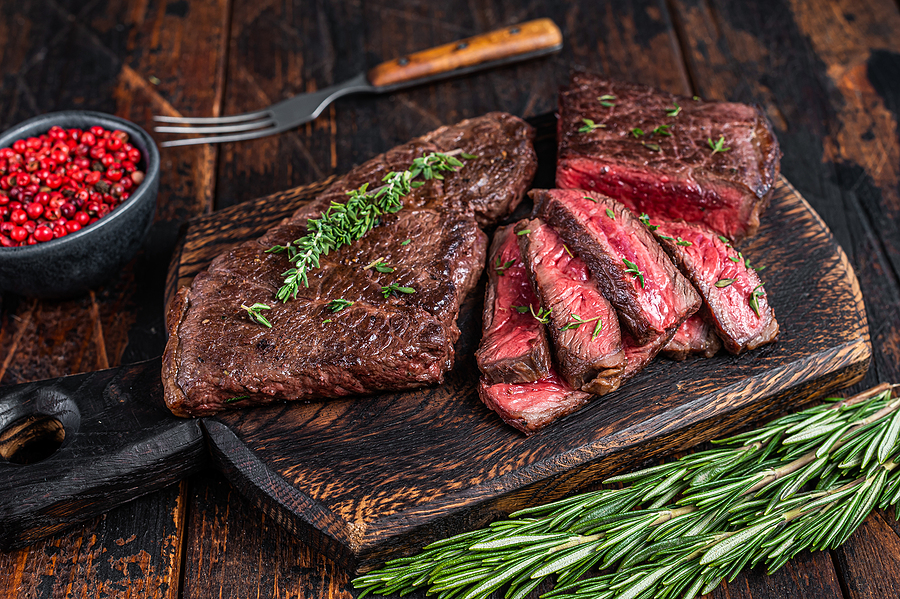Maybe you already have. But was it a wise move? That depends.
A team from Adelaide University has studied the relationship between meat intake and life expectancy around the world and found that as meat consumption increases, life expectancy increases too. Surprised?
They used data for 175 populations, representing 90% of the Earth’s people, and covered every type of meat from geese to horses, including game and offal.
So if meat is as problematic as we’ve been led to believe, why this outcome?
Presumably because it’s a nutritious food, humans have eaten it forever and we’ve genetically evolved to digest and assimilate it well. No traditional culture has ever been vegetarian.
The Adelaide research isn’t telling us that meat is the sole reason that populations live longer, because those that can afford meat will also be more educated, have better jobs, more access to healthcare, and so on.
A researcher’s job is to adjust their results for these things. After doing that the Adelaide team concluded that meat intake could still explain at least 50% of the variance in life expectancy.
Bear in mind this referred to populations not individuals. The inference isn’t that we should all tuck into more t-bones. But it does provide an interesting counterweight to all you may have come across in recent years about the evils of meat.
I can’t find recent reliable data on the consumption of red meat by Australian women, especially older women, but my guess is that those who loved their big barbecued steak and sausages are still in that mode, and women who were more moderate meat eaters to start with, and more likely to read dietary information, are the ones who’ve been convinced to eat less.
But if we cut out or virtually cut out meat, we can be short-changing ourselves nutritionally, especially given meat has a valuable role to play in helping us age well.
I wonder if the publicity given to the Mediterranean diet hasn’t been at least partly responsible.
One researcher (not from the Adelaide study) has said of the Med diet: “the data shows that this diet is high in vegetables, fruit, and whole grains. There is not a lot of animal protein, though there is protein from plants, such as beans and nuts”.
That could be construed as suggesting we’d be healthier if we prioritised plant protein.
My argument is for balance. Ideally, we want a broad range of both animal and plant foods.
In a nutritional showdown between, say, meat and offal vs legumes, meat and offal would win. But the fibre, minerals and variety that legumes provide warrant a place in our diets, as long as we like them and digest them well.
I notice that on the packet of frozen peas in my freezer it says they’re a source of plant protein to support muscle health. I hope it goes without saying that you don’t want to rely on peas for muscle health.
It’s also worth noting that the Adelaide Uni study analysed data from groupings of countries, including the countries around the Mediterranean Sea. Even here, regardless of the apparent benefits of the Mediterranean diet, meat consumption was associated with greater life expectancy from birth.
Meat might play a role in mental wellbeing too. Professor Felice Jacka is the head of the Food and Mood Centre at Deakin University. A finding from her PhD study was that cutting out red meat led to poorer mental health among 1,000 women participants. In fact, too much or too little was linked with a higher probability of anxiety or depression.
I haven’t been able to access the whole study so it’s hard to know how to interpret it. Maybe women who eat a moderate amount of meat are just more conscientious about all aspects of their health and that’s reflected in their mental health.
So how much meat should we eat? It’s likely we all have different needs, but the usual recommendation is three or four serves a week, assuming a serve is about a palm-sized amount.
I doubt I eat that much, but the point is there’s no health-based reason to eliminate it — yet I come across a lot of women who’ve largely done that.
Of course, it’s prudent to get the best quality we can afford, organic if you can, and buy from reliable sources. It’s encouraging that more people are interested in where their meat comes from.
Felice Jacka recommends grass-fed meat because it’s higher in omega-3 fatty acids, which have been linked to better mental health. But do your best. Be sparing with processed meat and sausages stuffed with who-knows-what.
If you’re committed to not eating meat, make the effort to ensure you’re getting everything you need nutritionally.
Otherwise, aim for a sensible balance.
Photo Source: Bigstock

